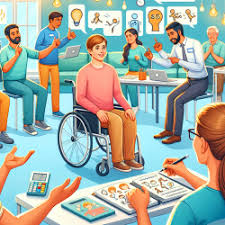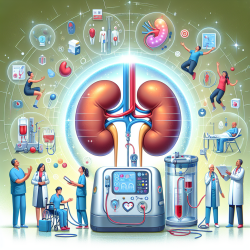As practitioners dedicated to improving outcomes for children with developmental disabilities, it is crucial to stay informed about effective intervention strategies. A recent study titled Acceptability and feasibility of the World Health Organization's Caregiver Skills Training Programme (WHO CST) delivered via eLearning, videoconferencing, and in-person hybrid modalities in Hong Kong provides valuable insights into the efficacy of various delivery modes of the WHO CST Programme. This blog post will summarize the key findings and discuss how practitioners can implement these outcomes to enhance their skills and services.
Overview of the Study
The study aimed to evaluate the acceptability and feasibility of the WHO CST Programme delivered through three different modalities: eLearning (EL), videoconferencing (VC), and in-person hybrid (IP). The study involved 34 parent-child dyads, randomly assigned to one of the three intervention groups or a wait-list control (WLC) group. Data were collected using standardized scales like the General Health Questionnaire (GHQ-12) and the Strengths and Difficulties Questionnaire (SDQ), along with qualitative feedback from caregivers.
Key Findings
- High Levels of Acceptability and Feasibility: All three delivery modes were well-received, with high ratings for comprehensiveness, relevance, and usefulness.
- Positive Impact on Caregivers and Children: Both IP and VC groups showed significant improvements in caregiver well-being and child behavior compared to the EL and WLC groups.
- Importance of Interaction: The presence of facilitators, either in-person or virtually, significantly contributed to better outcomes, highlighting the need for interactive elements in training programs.
Implementing the Findings
Based on the study's outcomes, practitioners can consider the following strategies to enhance their skills and services:
- Leverage Technology: Utilize eLearning and videoconferencing to provide flexible, accessible training for caregivers, especially during times when in-person sessions are not feasible.
- Incorporate Interactive Elements: Ensure that training programs include interactive components such as live coaching sessions, peer discussions, and real-time feedback to maximize effectiveness.
- Personalize Training: Tailor training programs to meet the specific needs and goals of families, balancing the benefits of remote interventions with the unique challenges faced by each family.
Encouraging Further Research
While this study provides valuable insights, further research is needed to explore additional variables such as caregivers' coping skills and children's behaviors in different domains. Practitioners are encouraged to contribute to ongoing research efforts to continually refine and improve intervention strategies.
To read the original research paper, please follow this link: Acceptability and feasibility of the World Health Organization's Caregiver Skills Training Programme (WHO CST) delivered via eLearning, videoconferencing, and in-person hybrid modalities in Hong Kong.










